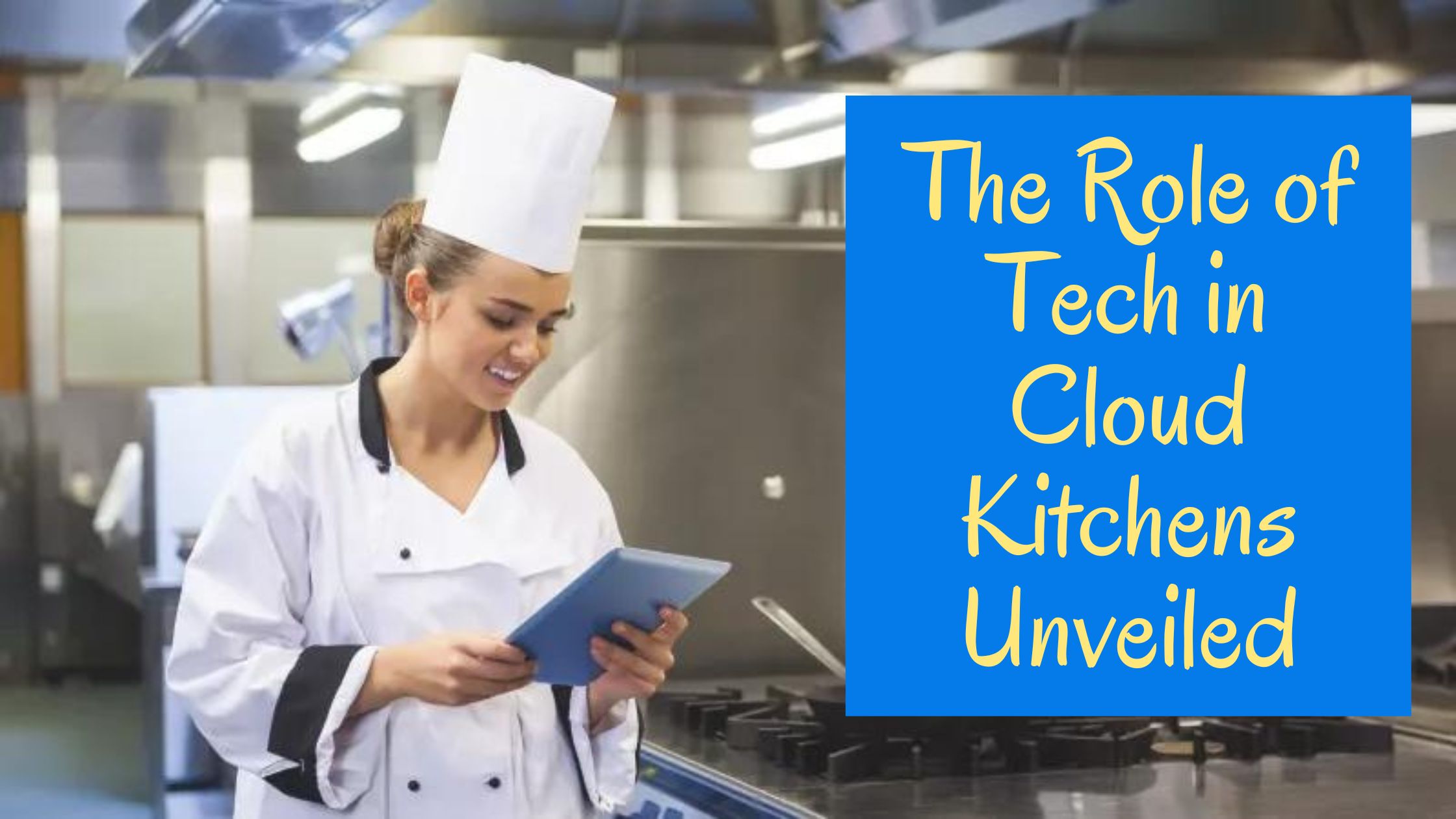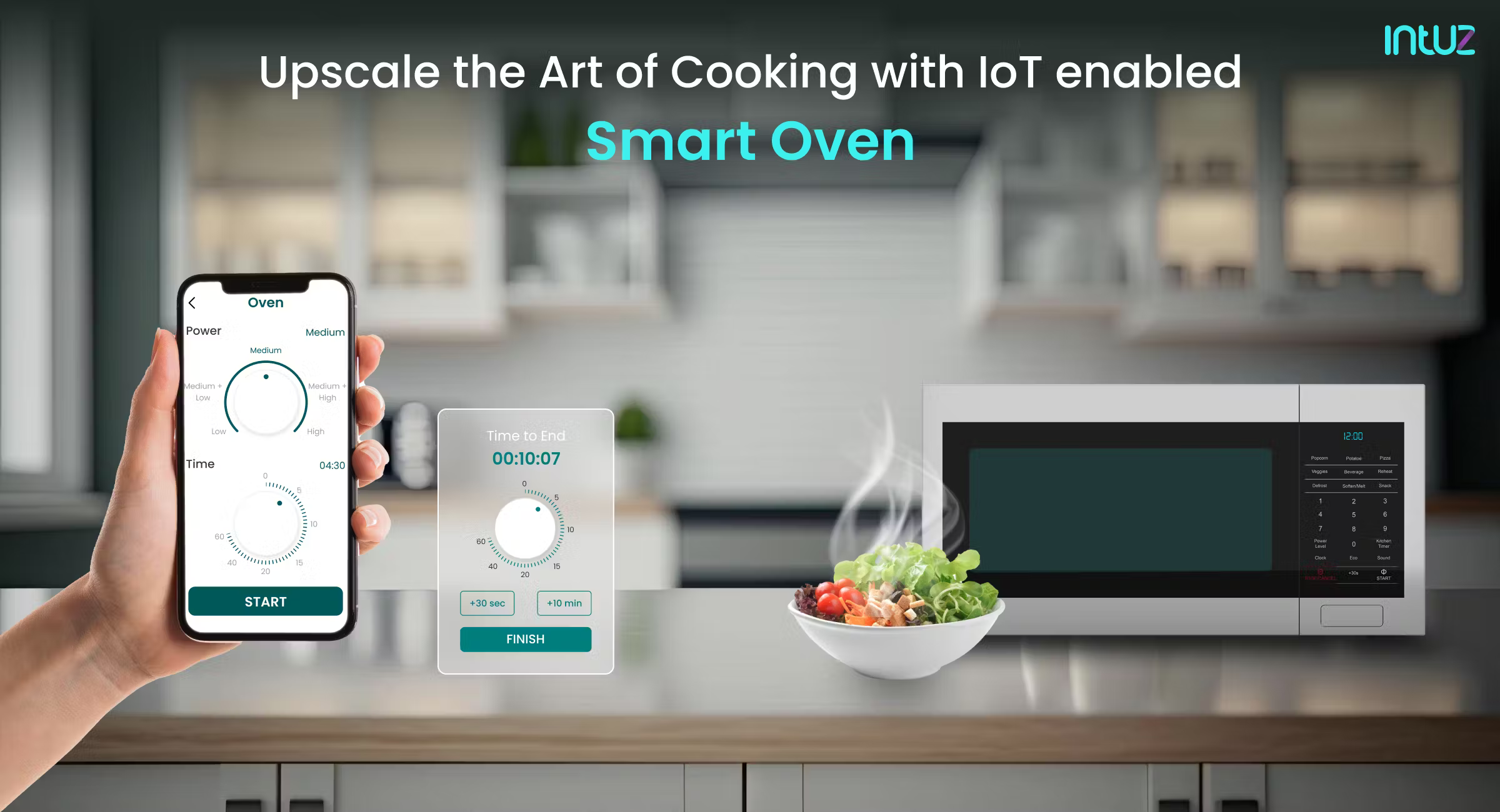
Revolutionizing Culinary Excellence: The Role of Tech in Cloud Kitchens Unveiled
Tech in Cloud Kitchens
In a world where technology is advancing at an unprecedented pace, the culinary realm is no exception. Cloud kitchens, the digital darlings of the food industry, are undergoing a transformative experience, thanks to cutting-edge innovations like Artificial Intelligence (AI) and the Internet of Things (IoT). Join us on a journey through the digital kitchen landscape, where tech innovations are not just enhancing efficiency but reshaping the very essence of how we prepare and enjoy our favourite meals.
Understanding the Digital Kitchen Revolution
The Rise of Cloud Kitchens
Before we delve into the tech marvels, let’s set the stage. Cloud kitchens, also known as ghost or dark kitchens, operate solely to fulfil online orders. These kitchens, devoid of physical dining spaces, leverage technology to streamline the entire process, from order placement to meal delivery. Now, let’s explore how innovations like AI and IoT are taking this concept to new heights.
The Tech Ingredients: AI and IoT in Cloud Kitchens
Artificial Intelligence: The Culinary Brainpower
Menu Optimization
AI analyzes data from customer preferences, ordering patterns, and market trends to optimize cloud kitchen menus. It helps chefs understand what dishes are popular, and what ingredients are in demand, and even predicts future food trends.
Predictive Analytics for Inventory
Say goodbye to wastage! AI can predict inventory needs based on historical data and current demand. This ensures that cloud kitchens have the right ingredients at the right time, minimizing food waste and maximizing efficiency.
Dynamic Pricing Strategies
AI enables dynamic pricing models, allowing cloud kitchens to adjust prices based on factors like demand, time of day, and even local events. This not only maximizes profits but also attracts budget-conscious customers during off-peak hours.
Personalized Customer Experiences
AI-powered chatbots and virtual assistants enhance the customer ordering experience. These smart assistants can suggest dishes based on previous orders, and dietary preferences, and even provide real-time order tracking.
Internet of Things: The Connected Kitchen Ecosystem with Tech in Cloud Kitchens
Smart Kitchen Appliances
IoT enables cloud kitchens to use smart kitchen appliances that communicate with each other. From ovens to refrigerators, these devices can be monitored and controlled remotely, ensuring precise cooking and energy efficiency.
Temperature and Quality Control
Sensors connected through IoT networks monitor the temperature and quality of ingredients in real-time. This ensures that food safety standards are met and allows for immediate corrective actions if necessary. This is the example of innovation by tech in cloud kitchen.
Automated Order Fulfillment
IoT-powered systems automate the order fulfilment process. From order receipt to packaging and delivery, interconnected devices ensure a seamless flow, reducing the likelihood of errors and delays.
Energy Efficiency
Cloud kitchens can optimize energy usage by integrating IoT sensors to regulate equipment usage based on demand. This not only reduces operational costs but also contributes to sustainability efforts.
The Impact of Tech in Cloud Kitchen on Operations and Beyond
Revolutionizing Operations
Efficiency Overdrive
Tech innovations bring unparalleled efficiency to cloud kitchen operations. AI streamlines decision-making, while IoT ensures that every device operates harmoniously, creating a synchronized and efficient kitchen ecosystem.
Real-Time Data Insights
The marriage of AI and IoT provides cloud kitchens with real-time data insights. Chefs and business owners can make data-driven decisions, whether it’s adjusting the menu, managing inventory, or optimizing delivery routes.
Scalability
Cloud kitchens can easily scale their operations with the help of technology. Whether opening new virtual brands or expanding to different locations, tech innovations make scalability a smoother journey.
Enhancing Customer Experience with Tech in Cloud Kitchens
Faster and Accurate Orders
AI algorithms predict customer preferences, leading to faster and more accurate order processing. IoT ensures that every step in the kitchen-to-door journey is monitored, reducing errors and enhancing overall service quality.
Personalization
AI-powered recommendation engines provide customers with personalized suggestions based on their past orders and preferences. This not only improves the customer experience but also encourages repeat business.
Transparent Communication
IoT-connected devices provide customers with real-time updates on their orders. From cooking and packaging to delivery, transparency in the process builds trust and satisfaction.
Challenges and Future Outlook
Navigating Challenges
Data Security
The use of AI and IoT in cloud kitchens raises concerns about data security. Protecting customer information and business data must be a top priority for cloud kitchen operators.
Initial Investment
Implementing advanced technology requires a significant initial investment. Small and startup cloud kitchens may face challenges in adopting these innovations without adequate financial resources.
The Future Kitchen Landscape with Tech in Cloud Kitchens
AI-Driven Culinary Creations
As AI algorithms become more sophisticated, we can expect the emergence of AI-generated recipes and culinary creations, pushing the boundaries of flavor combinations and food innovation.
Further Integration with Smart Cities
Cloud kitchens, powered by AI and IoT, could play a crucial role in the development of smart city initiatives. From optimizing delivery routes to contributing to sustainability goals, the integration possibilities are vast.
Advancements in Robotics
The marriage of AI, IoT, and robotics could lead to fully automated cloud kitchens, where robots handle tasks from food preparation to packaging. This could revolutionize the industry, especially in times of labour shortages.
Read also: The Ultimate Guide to the Lucrative Cloud Kitchen Business Model
In Conclusion: A Tech-Powered Culinary Future
As we savour the innovations shaping the cloud kitchen landscape, it’s clear that technology is not just a tool but a fundamental ingredient in the recipe for success. From AI’s predictive prowess to IoT’s interconnected efficiency, these innovations are transforming not only how we cook but how we experience food. As cloud kitchens continue to ride the tech wave, the future promises a culinary landscape where precision, efficiency, and personalization are the norm. Welcome to the era of tech-powered gastronomy – where every byte is as important as every bite.
Q.1 What are Tech in Cloud Kitchens?
A. Tech in Cloud Kitchens refer to advanced technological solutions used in cloud-based culinary operations, optimizing efficiency and delivery.
Q2. How do Tech in Cloud Kitchens work?
A. These technologies integrate software and hardware, managing orders, inventory, and cooking processes remotely for multiple brands from a single kitchen space.
Q3. What advantages do Tech in Cloud Kitchens offer to restaurateurs?
A. They provide cost savings, faster operations, scalability, and the ability to serve a wider customer base with lower overheads.
Q4. Is Tech in Cloud Kitchens suitable for startups and small businesses?
A. Yes, it’s a cost-effective option for new ventures, as it eliminates the need for a physical restaurant space.
Q5. What role does automation play in Tech in Cloud Kitchens?
A. Automation handles tasks like order processing, inventory management, and even cooking, streamlining operations.
Q6. Are there any specific software solutions for Tech in Cloud Kitchens?
A. Yes, various software platforms offer features tailored to the needs of cloud kitchen operators.
Q7. How can Tech in Cloud Kitchens improve the customer experience?
A. They enable faster order fulfillment, accurate delivery tracking, and enhanced menu customization, leading to better customer satisfaction.
Q8. What challenges are associated with implementing Tech in Cloud Kitchens?
A. Challenges may include initial setup costs, technology maintenance, and competition in the online food delivery market.
Q9. Are Tech in Cloud Kitchens environmentally friendly?
A. Yes, they often result in reduced food waste and energy consumption, making them more sustainable.
Q10. Can I start a Tech in Cloud Kitchen without prior culinary experience?
While culinary expertise is beneficial, you can partner with experienced chefs or use existing recipes and concepts to enter the cloud kitchen industry successfully.
